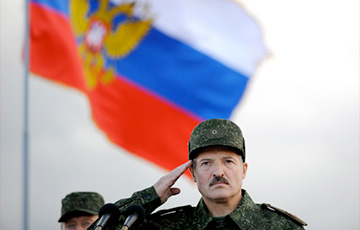Special Services of Lithuania: Belarus Plays an Important Role in Military Planning of Russia
- 12.02.2019, 12:14
- 4,079

Here are new details of the annual report of Lithuanian special services.
The report of the Lithuanian special services on threats to national security looks at Belarus through the prism of Russia, which military strategy sets the role of a "buffer state" for Lithuania, correspondent of Charter97.org from Vilnius informs.
The annual report is published by two Lithuanian special services - the State Security Department (SSD) and the military intelligence - the Second Investigation Department under the Ministry of National Defence. Its contents are available in Lithuanian and English.
Bridgehead
Russia continued its overall military build-up. In the Lithuanian neighbourhood, Belarus is the most susceptible to Russian influence. The report says that "Minsk is incapable of implementing fully independent policy because of financial dependence on Russia, unresolved bilateral issues and lack of economic reforms in the public sector".
Russian "continues to increase its influence in neighbouring countries using structural dependence and frozen conflicts". The section under this title says that after re-election of Vladimir Putin, Russia has started tightening control over Belarus, "so that Minsk would not implement policy inconsistent with the Kremlin's interests".
Moreover, the Putin's decision to broaden powers of newly appointed Russian Ambassador indicates "increasing requirement for direct control over processes in Belarus".
Long-range weapon systems deployed in Kaliningrad Oblast "would hamper NATO operations in the Baltic Sea region. From the standpoint of Lithuanian national security, Belarus plays the role of the "buffer state" in Russian military strategy.
"From the standpoint of the national security, the role of Belarus in Russian military planning is extremely important. In case of a conflict with the West / NATO, Russia plans to use Belarusian territory as a bridgehead for combat actions against the West," the national threat assessment of Lithuania says.
"Belarus associates its military security with Russia, as it still perceives NATO as the major source of external threats. Nevertheless, military rhetoric regarding expansion of NATO in the region is quite moderate".
The gradually deepening military integration with Russia reduces Belarus' ability to implement independent defence and security policy," the report points out.
In other words, the Lithuanian special services believe that Belarus is incapable to pursue an independent policy in any sphere.
Intelligence
Russia utilises intelligence collection capabilities of friendly countries. It uses those countries to conceal their intelligence requirements and to mask its intelligence activities. "Belarus remains Russia's closest ally in this field", the report states.
Belarusian intelligence services implement tasks of the Russian intelligence services and provide support to their operations in Belarus. In Belarusian territory, Russian intelligence freely recruits citizens of Western countries," the authors say. In addition, they point out that Russia uses Belarusian intelligence services to find those ideologically close to Russia and actively recruit Lithuanian and other Western citizens regularly travelling to Belarus and Russia.
Therefore, both Russian and Belarusian intelligence services may target Lithuanian citizens regularly travelling to Belarus. "Russian and Belarusian intelligence services are not equal partners as Russians dictate their terms to Belarusian colleagues", the reports says.
"Russian and Belarusian intelligence services are particularly interested in Lithuanian politicians and civil servants who have ties to Russia and Belarus," Lithuania believes.
Economic and Energy Security
According to the LSS, the construction of the Astravets nuclear power plant (NPP) is "a commercially groundless project, which does not comply with international nuclear safety standards. Russia provides funding and technologies to the NPP project that serves to enhance Russia's positions in the region". However, Lithuania stresses that the construction process is not smooth.
"Belarus amplifies every positive review of IAEA experts and deemphasizes or conceals every criticism of international experts. ", special services of Lithuania state and ad that BelNPP enhances Russia's influence in Belarus, in the whole region and Russia seeks to regain a leading position in the regional energy market.
Belarus, they say, has an ambition to become an important electricity provider "but the BelNPP project is commercially groundless". Nevertheless, "it is highly likely that Belarus will seek to circumvent Lithuanian legislation preventing electricity generated in unsafe nuclear power plants from entering the Lithuanian electricity market".
In the end the authors of the report stress that regardless sanctions and possible problems the Kremlin is unlikely to change its policy. The current regime "is set to a long-term confrontation with the West. Russia will use every opportunity to incite conflicts in other countries or provoke international crises if it perceives that as a chance to increase its influence".
The authors of the report sum up that Russia will tighten control over Belarus "to ensure that Belarusian decisions and domestic processes would conform to the Kremlin's interests".
"It is highly likely that the intensity of activities of Russian and Belarusian intelligence services will remain high".








